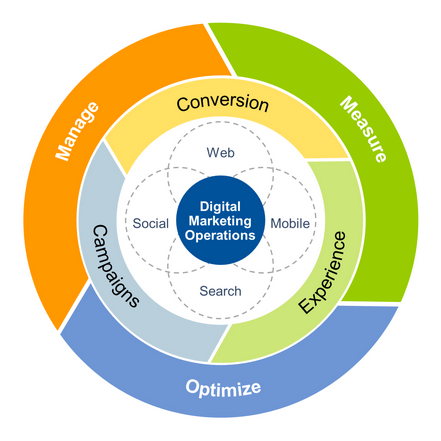For many organizations, digital marketing is seen as the engine for strategic growth. But, more often, it’s a set of disparate functions without an integrated and rock-solid foundation. This lack of operational maturity can hamstring your digital marketing ambitions.
Figure 1 illustrates how digital marketing performance depends on the integration and alignment of channels that drive campaigns, customer experiences and conversions through ongoing portfolio management of programs enabled by continuous measurement and optimization.
Execution suffers when people, process and technology aren’t in alignment. It suffers further when execution isn’t informed and optimized with data and analytics. What you need is the governing function of digital marketing operations — often led by the functional equivalent of a chief operating officer — which addresses the daily challenge of executing and optimizing complex, interdependent digital marketing disciplines. This function ensures programs and campaigns are appropriately nourished by data, collaborative planning and execution processes flow smoothly, and business outcomes are optimized via continuous measurement.
As you mature your digital marketing operations with resources in place, you’ll be able to support a digital marketing hub that enables your team to use technology and processes to connect digital disciplines. Bottom line: Your digital marketing operations will serve as a closed-loop system, enabled by people, process and technology, that’s agile, transparent and adaptive.

